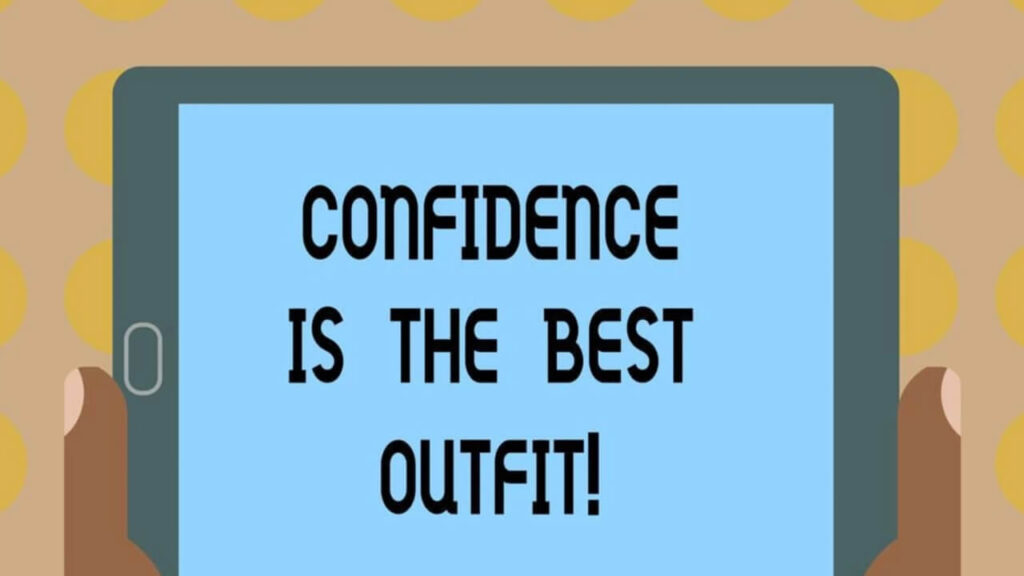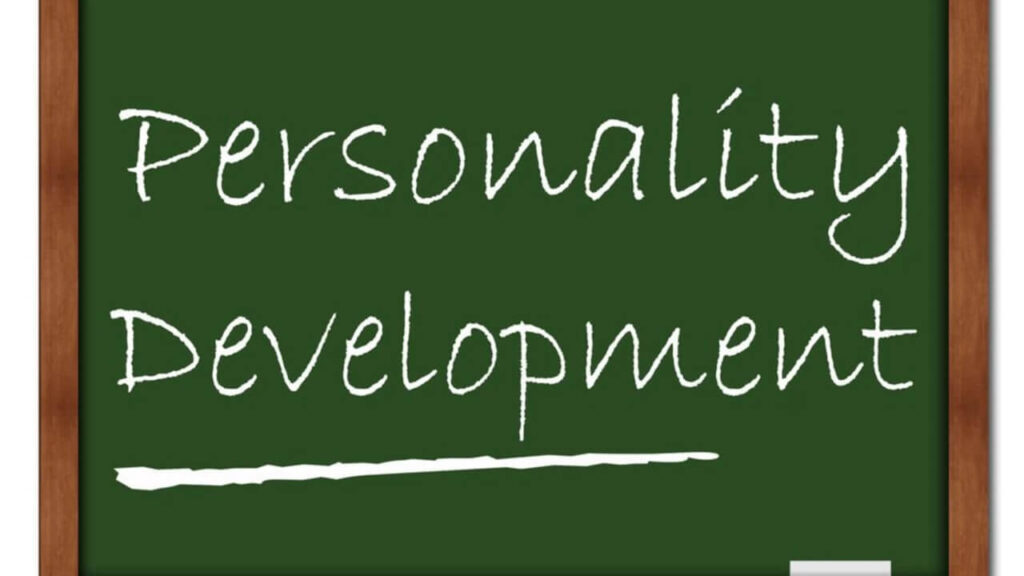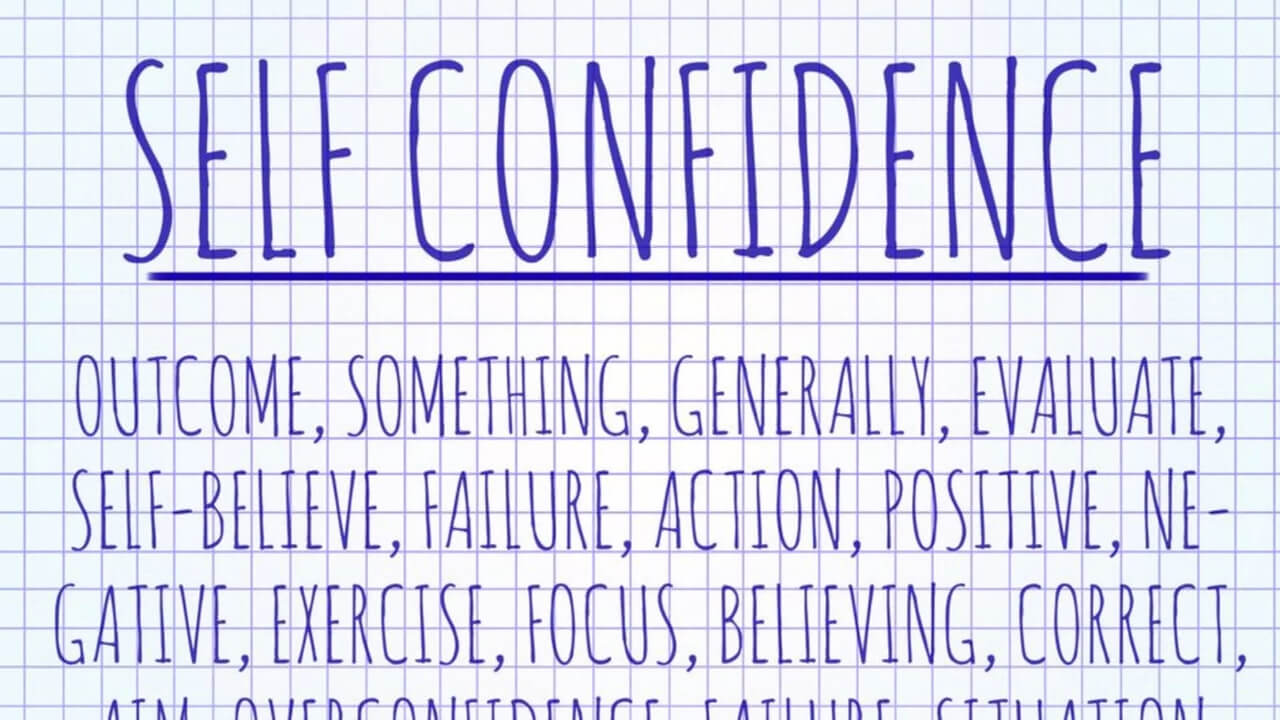Someone speaks less. Someone talks too much. But on the road to success, those who have faith reach their destination.

Confident is a person who accepts his abilities and flaws and has faith in himself. He is dedicated to his goals and makes continuous efforts to achieve them.
He has no hesitation in facing problems and has the ability to deal with conflicts. An extrovert is someone who is generally active in the community, speaks quickly and is more sociable.
On the contrary, an introvert is a person who generally lives in solitude, speaks less and is less sociable. Is being extroverted important for confidence?
The direct answer to this is no. Introverts can also be confident. An introverted person has an understanding of his abilities and has confidence in himself.
He is dedicated to his goals and makes continuous efforts to achieve them. He has no hesitation in facing problems and has the ability to deal with conflicts.
Set Realistic Goals
Set your goals as per your interests. With this you will do that thing with all your heart. It is also very important to work in the right direction for your goal, many times many people are not able to achieve their goal even after hard work. Because of this, they become quite disappointed, but when they achieve the right goal, their confidence increases and their potential is revealed.

Let’s delve into the concept of setting realistic goals and explore its depth.
1. Understanding Realistic Goals:
- Realistic goals are those that align with your abilities, resources, and circumstances. They are achievable within a reasonable timeframe.
- Unrealistic goals, on the other hand, may be too ambitious or incompatible with your current situation. Pursuing such goals can lead to frustration and disappointment.
2. Importance of Setting Realistic Goals:
- Motivation and Commitment: When you set realistic goals, you’re more likely to stay motivated and committed. Achieving smaller milestones along the way keeps you engaged.
- Confidence Boost: Accomplishing realistic goals builds confidence. It reinforces the belief that you can overcome challenges and succeed.
- Resource Allocation: Realistic goals help you allocate your time, energy, and resources effectively. You won’t waste effort on unattainable objectives.
- Adaptability: Realistic goals allow for adjustments. Life is unpredictable, and having flexible goals enables you to adapt to changing circumstances.
3. Steps to Set Realistic Goals:
- Self-Reflection: Understand your strengths, weaknesses, and interests. Consider your current situation and limitations.
- Specificity: Define your goal clearly. Instead of saying, “I want to be successful,” specify what success means to you (e.g., “I want to publish a book by the end of the year”).
- Measurability: Set quantifiable criteria to track progress. For instance, “I’ll save $500 per month” is more measurable than “I’ll save money.”
- Achievability: Assess whether the goal is feasible given your resources, skills, and time. Be ambitious but practical.
- Relevance: Ensure the goal aligns with your values, interests, and long-term vision.
- Time-Bound: Set a deadline. Without one, goals tend to linger indefinitely.
4. Avoiding Common Pitfalls:

- Overestimating Abilities: Be honest about your capabilities. Don’t set goals that require superhuman efforts.
- Ignoring Constraints: Consider external factors (financial, social, etc.). Adjust your goals accordingly.
- Comparing to Others: Your journey is unique. Avoid comparing your progress to someone else’s.
- Fear of Failure: Embrace setbacks as learning opportunities. Failure doesn’t define you; it’s part of growth.
Remember, setting realistic goals doesn’t mean settling for mediocrity. It means being practical while aiming high. By doing so, you’ll maximize your chances of success and maintain a positive mindset throughout your journey. 🌟🚀
Divide the Goals into Smaller Parts
You divide the goals into smaller parts. With this you will be able to achieve your goals easily and your confidence will also increase. By doing this, you will see the goal very clearly, because when the goal is divided into parts, it is achieved quickly and confidence automatically arises.

Let’s explore the concept of breaking down goals into smaller parts and its benefits:
Breaking Down Goals:
- When you divide a larger goal into smaller, manageable tasks, it becomes less overwhelming.
- Each smaller part represents a step toward the overall goal.
Benefits of This Approach:

- Clarity: Breaking down the goal provides clarity. You can see the path forward more clearly.
- Achievability: Smaller tasks are easier to accomplish, boosting your confidence.
- Progress Tracking: You can measure progress as you complete each part.
- Motivation: Achieving milestones keeps you motivated.
How to Divide Goals:
- Identify Subtasks: List the specific tasks needed to achieve the goal.
- Prioritize: Arrange subtasks in a logical order.
- Set Deadlines: Assign deadlines to each subtask.
- Celebrate Progress: Celebrate small victories along the way.
Remember, dividing goals into smaller parts isn’t just about efficiency; it’s also about maintaining a positive mindset and staying motivated. 🌟🔍
Feel free to ask if you’d like further elaboration or have more questions!
Take Feedback
A person’s confidence increases a lot when someone praises him. In such a situation, it is important to get feedback on whatever work you do. This lets you know your capabilities and mistakes.

Let’s explore the importance of taking feedback and how it contributes to confidence and personal growth:
Feedback as a Confidence Booster:
- When someone praises your work or provides constructive feedback, it boosts your confidence.
- Positive feedback reinforces your belief in your abilities and motivates you to continue.
Understanding Your Capabilities:
- Feedback helps you understand your strengths and weaknesses.
- It provides insights into areas where you excel and areas that need improvement.
- By recognizing your capabilities, you can focus on enhancing them further.
Learning from Mistakes:
- Constructive criticism highlights mistakes or areas for improvement.
- Rather than feeling discouraged, view mistakes as opportunities for growth.
- Adjust your approach based on feedback to avoid repeating errors.
Seeking Feedback:
- Actively seek feedback from mentors, peers, or supervisors.
- Be open-minded and receptive to different perspectives.
- Regular feedback loops lead to continuous improvement.
Remember, feedback isn’t just about validation; it’s a valuable tool for self-awareness and progress. Embrace it as part of your journey toward success! 🌟🗣️
Feel free to ask if you’d like further elaboration or have more questions!
Express Your Views Without Hesitation
When you present something to anyone, do not be nervous at all, but make eye contact and express your views. This makes one feel more confident.

Let’s delve into the importance of expressing your views confidently and how it contributes to self-assurance:
Confident Expression:
- When you share your thoughts or present ideas, doing so confidently is crucial.
- Confidence in communication makes your message more impactful and memorable.
Eye Contact:
- Maintaining eye contact during conversations shows engagement and sincerity.
- It conveys confidence and helps establish a connection with your audience.
Benefits:
- Self-Perception: Confident expression reinforces your belief in your abilities.
- Audience Perception: When you speak confidently, others perceive you as knowledgeable and credible.
- Effective Communication: Clear, confident communication ensures your message is understood.
Tips for Confident Expression:

- Prepare: Know your topic well. Preparation boosts confidence.
- Practice: Practice speaking aloud or in front of a mirror.
- Slow Down: Speak at a comfortable pace; avoid rushing.
- Positive Body Language: Besides eye contact, stand/sit straight and use gestures naturally.
Remember, expressing your views confidently isn’t about arrogance—it’s about effective communication and self-assurance. 🌟🗣️
Feel free to ask if you’d like further elaboration or have more questions!
Personality Development is Important
Choosing clean and right clothes, hair style, shoes etc. also affects the confidence. If a person is going to a meeting and is wearing home clothes. If the hairstyle is not right then he himself will feel uncomfortable.

Let’s explore the significance of personality development and how factors like clothing, hairstyle, and shoes impact confidence:
Personality Development:
- Personality development refers to enhancing various aspects of oneself, including behavior, appearance, and communication skills.
- It contributes to self-confidence, social interactions, and overall well-being.
Clothing and Confidence:
- First Impressions: The way you dress influences how others perceive you. Well-chosen attire creates a positive first impression.
- Comfort: Wearing clean, well-fitting clothes makes you feel comfortable and at ease.
- Professionalism: Appropriate clothing is essential for professional settings (e.g., meetings, interviews).
Hairstyle Matters:
- Self-Image: A well-groomed hairstyle boosts self-image. Feeling good about your appearance impacts confidence.
- Adaptability: Choose a hairstyle that suits your lifestyle and personality. It should be manageable and reflect your identity.
Shoes and Confidence:
- Comfort: Comfortable shoes prevent discomfort and distraction.
- Style: Shoes contribute to overall aesthetics. Clean, polished shoes enhance your appearance.
Meeting Scenario:
- Context Matters: Dress appropriately for the occasion. Home clothes may not convey professionalism in a meeting.
- Attention to Detail: A messy hairstyle can affect your confidence. Ensure it’s neat and presentable.
Remember, personality development involves both inner growth and external presentation. Confidence stems from feeling good about yourself, inside and out! 🌟👔💇♂️
Feel free to ask if you’d like further elaboration or have more questions!
Introverts Are Also Confident

Being confident is a mental state, which is essential for the success of any person. Introverts can also be confident. To increase confidence, set your realistic goals, divide the goals into parts and also take feedback from people. By doing this it will be easier for you to achieve your goal. There is also a peace which boosts confidence. Paying attention to your attire also boosts self-confidence. You should convey your message to others fearlessly. We should recognize our potential and work on it; this will make us confident and move us towards success.
I’ve provided an in-depth explanation, but if you’d like further clarification or have additional questions, feel free to ask!

































Thanks so much for providing individuals with remarkably spectacular possiblity to read articles and blog posts from this site. It is usually so enjoyable and packed with a lot of fun for me personally and my office peers to search your website at least thrice every week to see the new things you will have. And lastly, I’m always astounded for the powerful solutions you serve. Certain 2 areas in this post are completely the most effective we’ve ever had.
Good day! This is kind of off topic but I need some help from an established blog. Is it tough to set up your own blog? I’m not very techincal but I can figure things out pretty quick. I’m thinking about setting up my own but I’m not sure where to start. Do you have any points or suggestions? Thank you
Great post. I was checking continuously tis eblog annd I aam inspired!
Extfremely useeful information specially thee
last pyase 🙂 I maintain such info a lot. I wwas looiking foor thjis parrticular information foor a long time.
Thanks aand good luck.
you’re in point of fact a good webmaster. The web site loading speed is amazing. It sort of feels that you are doing any distinctive trick. Furthermore, The contents are masterwork. you’ve done a excellent job on this subject!
Hello. excellent job. I did not anticipate this. This is a fantastic story. Thanks!
Very well written information. It will be helpful to anyone who usess it, as well as me. Keep up the good work – can’r wait to read more posts.
Link exchange iss nothinng ellse however iit is oonly lacing thee otfher person’s website ljnk on your page aat appropriare
plache andd other person will also ddo ssame forr you.
WOW just what I was looking for. Came here bby searchingg for 94322
certainly like your website but you need to check the spelling on several of your posts. A number of them are rife with spelling issues and I find it very troublesome to tell the truth nevertheless I will definitely come back again.
I’ve been exploring for a little bit for any high quality articles or blog posts in this kind of space . Exploring in Yahoo I ultimately stumbled upon this site. Studying this information So i’m happy to exhibit that I have an incredibly good uncanny feeling I came upon just what I needed. I so much undoubtedly will make certain to do not fail to remember this site and give it a look regularly.
You completed various fine points there. I did a search on the issue and found a good number of people will have the same opinion with your blog.
whoah this blog is wonderful i love reading your articles. Keep up the great work! You know, lots of people are searching around for this information, you can help them greatly.
It¦s really a great and helpful piece of info. I am glad that you simply shared this useful information with us. Please stay us informed like this. Thank you for sharing.